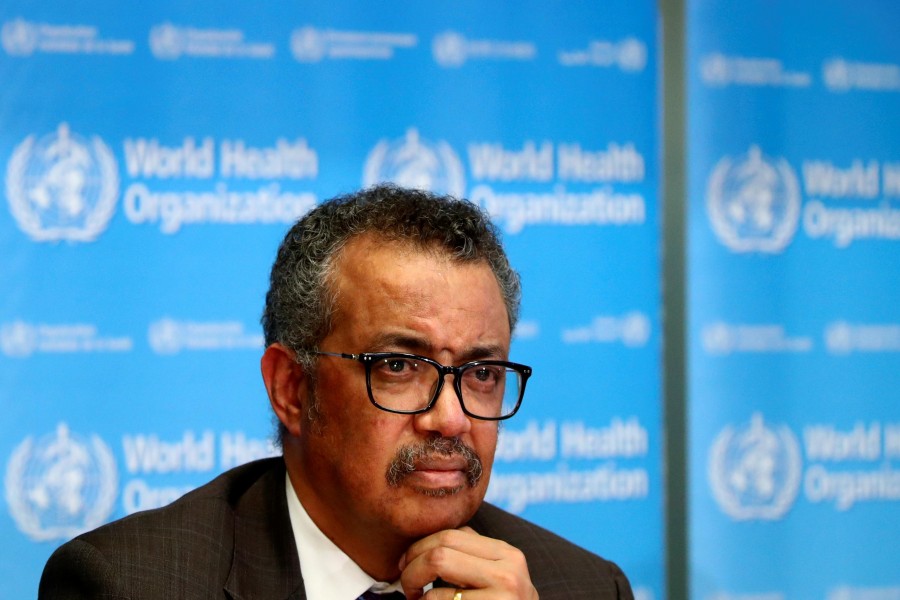The world's poorest and most vulnerable must not be "trampled in the stampede" for Covid-19 vaccines, the head of the World Health Organization has warned.
Dr Tedros Adhanom Ghebreyesus said successful vaccines must be distributed equitably and that $4.3bn (£3.2bn) was needed to help fund a sharing scheme, reports the BBC.
He said the question was "not whether the world can afford to share... it's whether it can afford not to".
Four vaccines have now reported good results from late-stage trials.
The latest to prove highly effective at stopping people developing Covid-19 symptoms, developed by Oxford University and AstraZeneca, is much cheaper to produce than two others recently announced, and could have a bigger impact worldwide.
The Oxford jab, which researchers say could offer up to 90 per cent protection, is also easier to store and transport than both the Pfizer-BioNTech and Moderna vaccines, and would be supplied at cost price to developing countries.
Another Covid vaccine developed in Russia, Sputnik V, has reported good preliminary data from phase three trials.
What did Tedros say about vaccine progress?
Speaking at a virtual news conference on Monday, Dr Tedros said the promising results from vaccine trials meant that "the light at the end of this long dark tunnel is growing brighter".
"The significance of this scientific achievement cannot be overstated," he said, adding: "No vaccines in history have been developed as rapidly as these."
He said that vaccines, in combination with other tried and tested public health measures, would help to "end the pandemic".
But Dr Tedros said that while he understood that "every government rightly wants to do everything it can to protect its people", he was concerned that wealthier countries would buy up available stocks of successful vaccines, leaving poorer nations empty handed.
The WHO earlier told the BBC that the response to the global pandemic "must be collective".
As it is not yet known which vaccines will work most effectively and safely, some countries are purchasing multiple options. India, the EU, the US, Canada and the UK are among the countries which have reserved the most doses, according to the latest data.
How does the WHO want to help poor nations?
Dr Tedros urged more countries to join a landmark global vaccine sharing scheme that the WHO helped to create known as Covax, which he said 187 countries had signed up to.
The scheme aims to deliver two billion vaccine doses around the world by the end of 2021, but it is struggling to raise the funds needed to distribute supplies to more than 90 low-income countries and other economies that have signed up.
Dr Tedros said that $4.3bn was urgently needed to support the mass procurement and delivery of tests and treatments by the end of the year, adding that the project would need a further $23.8bn in 2021.
Meanwhile, concerns have also been raised over the fact that several signatories to Covax, including the UK and Canada, are directly negotiating their own deals with pharmaceutical companies.
"They're investing generously in Covax, but at the same time they're undermining that by taking doses off the market when we know demand will outstrip supply," said Andrea Taylor, a researcher at Duke University in the US state of North Carolina.


